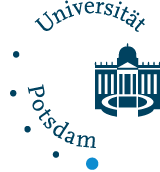‘Safe spaces' in Participatory Design with Young Forced Migrants
Project funding:
The partners at the University of Münster are part of the Geoinformatics: Enabling Open Cities - — GEO-C — - project (http://geo-c.eu) funded by the H2020 Marie Sklodowska-Curie Actions.
Project description:
Previous participatory design (PD) research has referred to `safe spaces' or `safe environments', particularly when working with vulnerable or marginalised communities. Despite this, the role of these space, their characteristics, their potential impact and what enables them are still not yet fully understood. In this co-design study with 19 young forced migrants, we investigated factors that enable `safe spaces' while developing digital tools for their use. We based our approach on four main components: ethics, content, a set-up for promoting participation, and reflective processes. Our findings indicate that `safe spaces' can be promoted through the combination of these four components. Participants exhibited a high degree of engagement, seemed to be comfortable while interacting socially, and showed signs of developing a trust relationship with the facilitators. Based on our results, `safe spaces' can thus be enabled by the four proposed components and can provide a theoretical basis for inclusive participatory projects in Human-Computer Interaction. The work presented in this article can benefit designers engaging vulnerable communities in participatory activities.
Project partners:
- Ana Bustamante Duarte, Institute for Geoinformatics, University of Münster
- Auriol Degbelo, Institute for Geoinformatics, University of Münster
- Nina Brendel, Institute of Environmental Science and Geography, University of Potsdam
- Christian Kray, Institute of Geoinformatics, University of Münster
Related Publication:
Bustamante, A.M., Degbelo, A., Brendel, N. & Kray, C. (accepted). ‚Safe spaces' in Participatory Design with Young Forced Migrants. CoDesign International Journal of CoCreation in Design and the Arts.
Contact:
